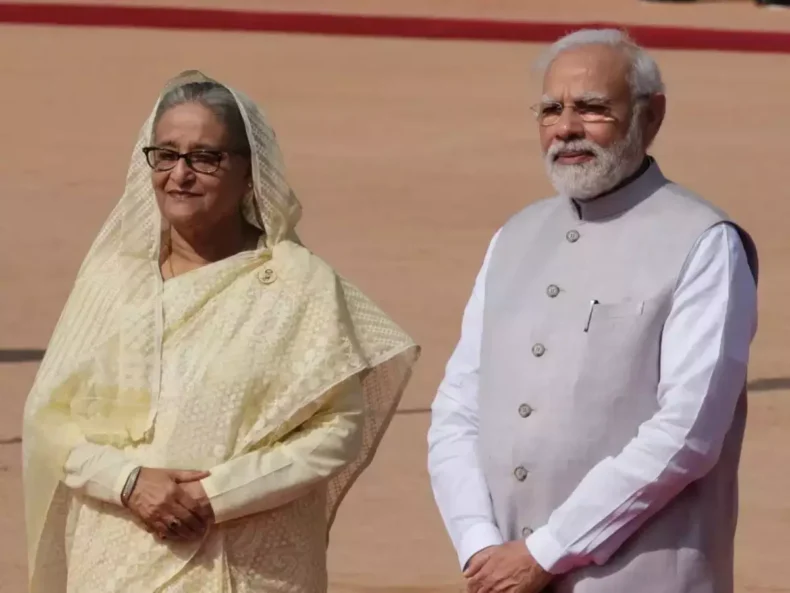India and Bangladesh are ready and excited to inaugurate the first-ever cross-border oil pipeline. This groundbreaking project, which has been in the works for years, is set to revolutionize the way these two countries transport diesel fuel, and it is being hailed as a major milestone in the history of South Asia.
A little bit of details
The pipeline is an impressive feat of engineering, stretching over 130 km from the Indian town of Siliguri to Parbatipur in Bangladesh. It is expected to transport an incredible 1 million metric tonnes of diesel every year, providing a much-needed boost to Bangladesh’s energy security and contributing to India’s efforts to enhance its economic ties with its neighbors.
The project has been a collaborative effort between the two countries, and it has required significant investment and expertise to bring it to fruition. The governments of the countries have worked closely with private companies to ensure the success of the project, and the result is a world-class infrastructure that is poised to deliver enormous benefits to both countries.

The significance of the pipeline cannot be overstated. Not only will it help to reduce transportation costs, but it will also reduce the dependence of Dhaka on seaborne imports, which are often subject to price fluctuations and logistical challenges. The pipeline will also provide a much-needed boost to the economy of the region, creating jobs and spurring growth in a variety of sectors.
The inauguration ceremony, which will take place on March 18, is set to be a momentous occasion. Indian Prime Minister Narendra Modi and his Bangladeshi counterpart, Ms. Sheikh Hasina will participate in the event through video conferencing, reflecting the importance of the project to both nations. The ceremony will mark the beginning of a new era of cooperation between the two countries, setting the stage for further collaboration in areas such as trade, security, and energy.
Past pipelines, symbolic of the comradeship
In the past, there have been several other pipeline projects that have connected the two nations, further strengthening their energy ties.
One such project was the construction of the Dhaka-Ashuganj-Sirajganj gas pipeline, which was completed in 2015. This pipeline, which stretches over 130 km, was built to transport natural gas from Bangladesh to India, and it has been instrumental in meeting India’s growing demand for clean energy.

Another notable project was the India-Bangladesh Friendship Pipeline, which was inaugurated in 2019. This pipeline, which connects Siliguri in India to Parbatipur in Bangladesh, was built to transport diesel fuel from India to Bangladesh, much like the new cross-border oil pipeline. The Friendship Pipeline has been a resounding success, providing a reliable source of energy to Bangladesh and helping to strengthen the economic ties between the two countries.
In addition to these pipeline projects, there have been other energy initiatives between India and Bangladesh. One such project was the commissioning of the Maitree Super Thermal Power Project in 2020. This power project, which is located in Bangladesh, was built with Indian investment and expertise and is expected to provide much-needed electricity to the people of Bangladesh.
Pipeline: connecting India-Bangladesh
These initiatives demonstrate the commitment of both New Delhi and Dhaka to enhancing their energy cooperation and building a strong partnership for the future.

As the world looks on in anticipation, it is clear that the Bangladesh-India cross-border oil pipeline is much more than just a transportation infrastructure project. It is a symbol of the friendship and cooperation between two nations, and it represents a significant step forward in the quest for regional integration and economic development. The future is bright for these two countries, and the pipeline is just the beginning.













